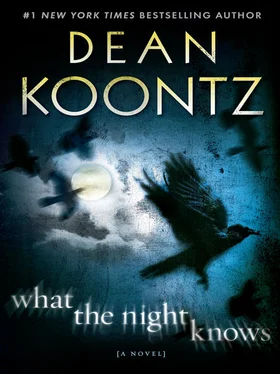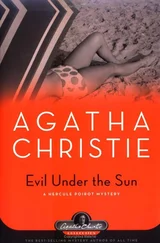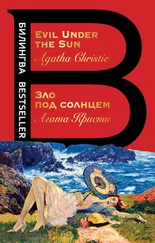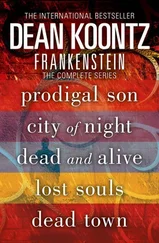1 ...6 7 8 10 11 12 ...100 After exiting the document, John looked at the nearest window down which rain washed in the fading daylight, and he thought of the dark urine flooding across the glass partition between him and Billy.
His disquiet quickened into fear. The house was warm, but he was chilled. He shivered.
He did not feel less of a man or less of a cop for being afraid. Fear was useful if it didn’t foster paralytic indecision. Fear could clarify and sharpen his thinking.
Calling up the directory again and scrolling through it, John searched for other document titles that might be surnames. Perhaps Billy had selected and researched other target families.
Whatever the young killer’s plans had been, surely they were now of no concern. The security at the state hospital was layered and reliable. He could not escape. The psychiatric board would not deem him cured at least for decades, if ever; they would not turn him loose.
Yet intuition warned John that his family was a target. The taut wire of his survival instinct vibrated, it hummed .
When he found no obvious surnames used as document titles, he closed out the program and shut down the computer.
From within the desk came a few bars of a song that John didn’t recognize. When he pulled open a drawer, the bars repeated, and he picked up a cell phone that must have belonged to Billy Lucas.
No caller ID appeared on the display.
John waited through fourteen repetitions of the song bite. When the call was not sent to voice mail, the caller’s persistence gave him the reason he needed to answer.
“Hello.”
He received no reply.
“Who’s there?”
Not a dead line. The hollow silence was alive, the caller unresponsive.
The best way to engage in any game of intimidation was to play boldly by the rules of the would-be intimidator. John listened to the listener, giving him no satisfaction.
After half a minute, a single word whispered down the line. He could not be sure, but he thought it sounded like Servus .
John waited another half minute before he terminated the call and returned the phone to the drawer.
At the door, when he extinguished the bedside lamps with the wall switch, rhythmic strobes of green light drew his attention to the fact that the clock radio, which had been keeping time when he first entered the room, was now flashing 12:00, 12:00, 12:00.…
When he stepped into the upstairs hallway, where he had left the overhead lights on, a more conventional ringing came from a telephone toward the back of the house. After a hesitation, John followed the sound, pushed open a door, clicked on a light, and found the former master bedroom, where much of the living-room furniture was now stored. The phone rang and rang.
He didn’t know what might be happening. He suspected that the worst thing he could do was encourage it, and he switched off the lights, closed the door.
In the hall, at the head of the stairs, he extinguished the ceiling fixtures—and darkness folded around him like great black wings, the landing window offering no relief.
His heart beat faster as he fumbled for the flashlight in one of his sport-coat pockets. The LED beam painted coils of light on the walls, made the pattern in the stair runner seem to wriggle with life, and darkled down the polished-mahogany railing.
Descending past Carnation, Lily, Lily, Rose , he was peripherally aware of something new and monstrous about the painting, the Chinese lanterns too bright, their orange color smeared across too much of the canvas, as if one or both of the little girls in white dresses had been set afire, but he refused to look directly.
The telephones shrilled in the living room, study, and kitchen. The pause between each ring seemed to be shorter than usual, the electronic tones harsher and more urgent.
He snared his raincoat from the newel post, didn’t pause to put it on. When he threw open the front door, the phones stopped ringing.
Stepping onto the porch, which lay now in the grip of night, he thought he saw a figure on the padded glider to his left, where Billy Lucas had once sat naked and blood-soaked to wait for the police. But when John swept the glider with the flashlight, it proved to be unoccupied.
He locked the house, slipped into his raincoat, found his car keys, and hurried into the rain, forgetting to put up his hood. On his head and hands, the downpour felt as cold as ice water.
In the car, as the engine turned over, he heard himself say, “It’s begun,” which must have been an expression of a subconscious certainty, for he had not meant to speak.
No. Not certainty. Superstition. Nothing had begun. What he feared would not come to pass. It could not. It was impossible.
He reversed out of the Lucas driveway, into the street, fence pickets flaring bright and shadows leaping.
The wipers swept cascades off the windshield, and the rain seemed foul, contaminated.
In the fullness of the night, John Calvino drove home to his family.
From the journal of Alton Turner Blackwood:
I am Alton Turner Blackwood, and I remember.…
The south tower was chiseled stairs and stone walls spiraling up four stories to one round room, fourteen feet in diameter. Four pairs of leaded windows, beveled glass, crank handles to open. A truss-and-beam ceiling. From one of the beams, she hanged herself .
The family’s fortune started from railroads. Maybe it was honest money then. Terrence James Turner Blackwood—Teejay to his closest associates, who were not the same thing as friends—inherited the whole estate. He was only twenty-one, as ambitious as a dung beetle. He grew it bigger by publishing magazines, producing silent films, developing land, buying politicians .
Teejay worshipped one thing. He didn’t worship money, for the same reason a desert dweller doesn’t worship sand. He worshipped beauty .
Teejay built the castle in 1924 when he was twenty-four. He called it a castle, but it wasn’t one. Just a big house with castle parts plugged on to it. Some public rooms were accidentally lovely. Outside, from every angle, it was an ugly pile .
He worshipped beauty, but he didn’t know how to create it .
In one sense, the house was the opposite of Teejay. He was so handsome you could call him pretty. His worship of beauty was in part self-worship. But inside, he was as ugly as the outside of his house. His soul was not bejeweled, but encrusted. Not even Teejay could have named some of the needs that formed that crust .
The immense house was called Crown Hill, after the knoll on which it stood. The 280-acre property lay along the northern coast, which has always been a dangerous length of shore. Every coast is dangerous, of course: Land falls away to the chaos of vast waters .
Jillian Hathaway was the most famous and beloved actress of silent films. She made two talkies, as well. One became a classic: Circle of Evil. She supposedly married Terrence Blackwood in Acapulco in 1926. They were never wed. She moved in to the castle that wasn’t. In 1929, at the age of twenty-eight, she retired from films .
Jillian gave birth to Marjorie, her only child, also in 1929. The once-glamorous star hung herself fourteen years thereafter. She was still very beautiful. Even in death, she was very beautiful. Perhaps especially in death .
The Blackwood family continued to produce new generations. Decades later, Anita Blackwood gave birth to Teejay’s great-grandson. Terrence, connoisseur of beauty, wanted the deformed infant placed at once in an institution. The father, of course, agreed. But Anita would not allow her son to be discarded like trash .
In time, perhaps she regretted her decision. Over the years, though she taught the boy to read well at a young age, she otherwise distanced herself from him. Eventually she abandoned him at Crown Hill, to the mercy of the merciless old man .
Читать дальше
Конец ознакомительного отрывка
Купить книгу












